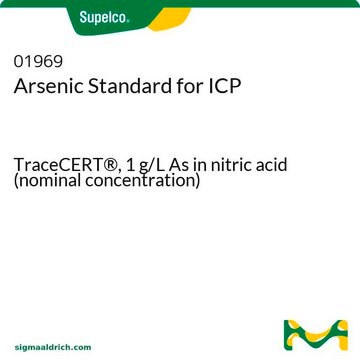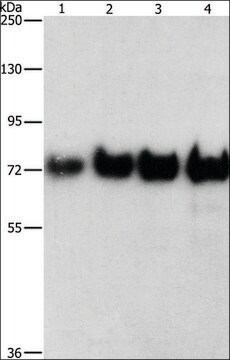A0433
Anti-Albumin antibody produced in rabbit
IgG fraction of antiserum
Synonym(s):
Anti Albumin Antibody
About This Item
Recommended Products
biological source
rabbit
Quality Level
conjugate
unconjugated
antibody form
IgG fraction of antiserum
antibody product type
primary antibodies
clone
polyclonal
mol wt
antigen 65 kDa
species reactivity
human
technique(s)
indirect ELISA: 1:25,000
quantitative precipitin assay: 4.0-6.0 mg/mL
UniProt accession no.
shipped in
dry ice
storage temp.
−20°C
target post-translational modification
unmodified
Gene Information
human ... ALB(213)
General description
Specificity
Immunogen
Application
- immunocytochemistry
- immunoassay of amino-terminal fragments(ATF)-human serum albumin (HSA)
- canstatin (Can) - human serum albumin (HSA)
- enzyme-linked immunosorbent assay (ELISA)
Biochem/physiol Actions
Physical form
Disclaimer
Not finding the right product?
Try our Product Selector Tool.
Storage Class Code
12 - Non Combustible Liquids
WGK
WGK 2
Flash Point(F)
Not applicable
Flash Point(C)
Not applicable
Certificates of Analysis (COA)
Search for Certificates of Analysis (COA) by entering the products Lot/Batch Number. Lot and Batch Numbers can be found on a product’s label following the words ‘Lot’ or ‘Batch’.
Already Own This Product?
Find documentation for the products that you have recently purchased in the Document Library.
Customers Also Viewed
Our team of scientists has experience in all areas of research including Life Science, Material Science, Chemical Synthesis, Chromatography, Analytical and many others.
Contact Technical Service











